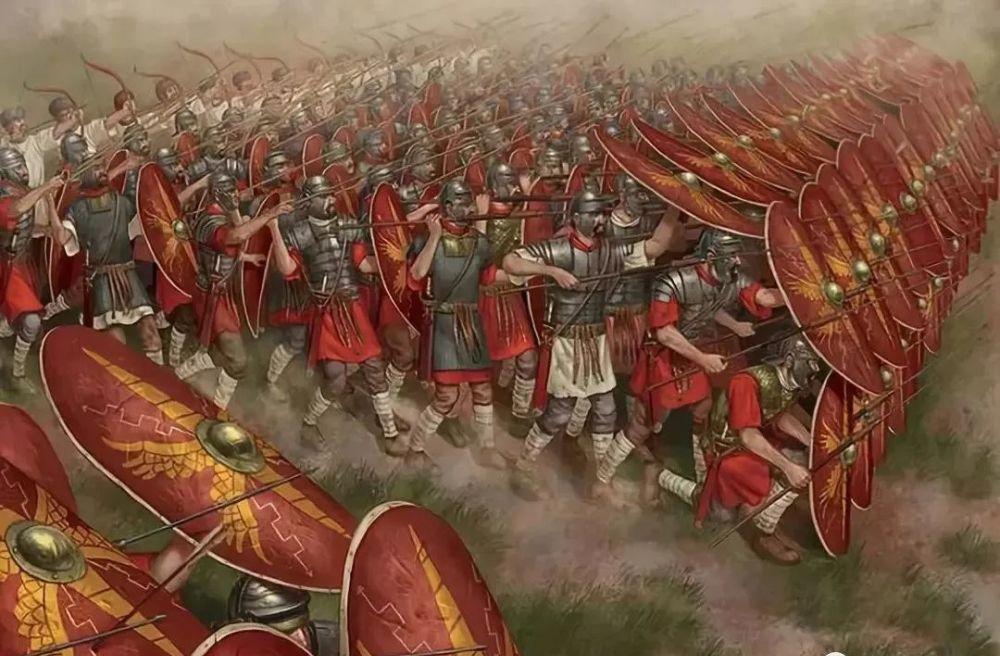At the end of the ancient great empire, it was often difficult to maintain the authority of the court internally, and the external inability to resist external troubles, and could only move towards the collapse of the empire in the intercourse of internal and external troubles.
However, during this period, the great empire will occasionally shine, otherwise, the demise of an unashamed dynasty is a matter of minutes. The Battle of Chalon was the last glorious battle left by the Western Roman Empire in history on the eve of its collapse.
In this battle, the Western Roman legions, under the command of Grand Duke Aetius, united many barbarian tribes and defeated the Hun king Attila, who was later known as the "Whip of God", preserving the Western Roman Empire and maintaining the balance between the major forces in Europe.
For Aetius, after determining the victory at the Battle of Charons, how to deal with the threat of the Visigoths became the top priority of the Western Roman court. In order to balance the dominance of the Visigothic family, Aetius decided to spare the besieged Attila in order to maintain the balance between the three forces.

For Attila at that time, the defeat at the Battle of Sharon not only led to the siege of himself, but also caused the Huns to lose many barbarian allies. At the time of attila's siege, the barbarian tribes that had previously submitted to his throne had few helpers.
Their inaction meant that the Huns were not only demorally at a disadvantage against the Visigothic-Western Roman forces, but also inferior in the number of more critical soldiers.
However, under attila's leadership, the Huns built a strong defense line with large carts and shot any enemy who dared to approach with a rain of arrows! Although the Visigoths, under the command of Prince Torrismund, attacked several times, they were difficult to break through in the face of the stubborn stubbornness of the Huns, and could only return in vain.
However, in the face of the enemy who had the advantage in strength, Attila knew clearly that the collapse of his own defense line was only a matter of time. In order to prevent his own captivity and humiliation, the Hun king had the determination to cut himself!
However, judging from the later course of events, King Attila was very fortunate to have a life, and of course, it can be said that Attila returned safely to the garrison. The reason for this was that the Visigoths and the Western Roman court were not united, and the two sides confronted each other for decades, only because the Huns were too strong, that they temporarily joined forces to unite with the outside world.
When Attila was defeated, the basis for the alliance ceased to exist, and the Western Roman court began to find ways to suppress the powerful Visigoths. How to deal with the powerful Visigoths when the Romans were insufficient?
Aetius thought of using Attila's power to balance the Visigoths. Otherwise, once the Visigoths, led by Prince Torresmond, had eliminated Attila, the arrogant Visigoths would become a nightmare for the Western court.
To this end, after the Visigoths attacked Attila without success, Aetius proposed a military conference, in which he proposed the use of siege but not attack to trap Attila. The Visigoths were very dissatisfied with his proposal, they felt that this method was too time-consuming, and hoped to concentrate their superior forces to suppress the rebellious Huns in one fell swoop.
Soon, however, the Visigoths changed their minds, and the prince Torresmond, who had already gained popular approval in the war, quickly ordered the army to be withdrawn and returned to the court of the Visigothic kingdom.
This was due to the persuasion of Aetius.
The commander of the Western Roman Empire advised Torresmond to return to the capital to Toulouse as soon as possible, or his brother might seek the throne. In this battle, the Visigothic king Theodoric was killed, and the kingdom needed a new king, and if he could not return to the capital for a long time because of Arti, the kingdom could be stolen by his brother.
Believing that this situation was something Torrismund did not want to see, the Visigoths quickly withdrew under the leadership of the prince. After losing the support of the Visigoths, Aetius was no longer able to suppress the Huns, and both sides quietly retreated in their camps.
The silence of the battlefield made Attila nervous, and for a time suspected that the other side had some conspiracy. However, after a few days of confirmation, Attila, after determining that his opponent had not re-attacked him, went to the defense of the cart and led the remaining Huns out of the chalon plain and withdrew to the starting point.
With the departure of the Visigoths and Huns, the great war that determined the ownership of the European region finally came to an end. From the Hun invasion to the gray retreat, Attila gained nothing but tens of thousands of bones. This battle also became the biggest defeat in Attila's life, and it will be remembered in the annals of history.
Thank you for your attention and support, welcome to like, comment and retweet.